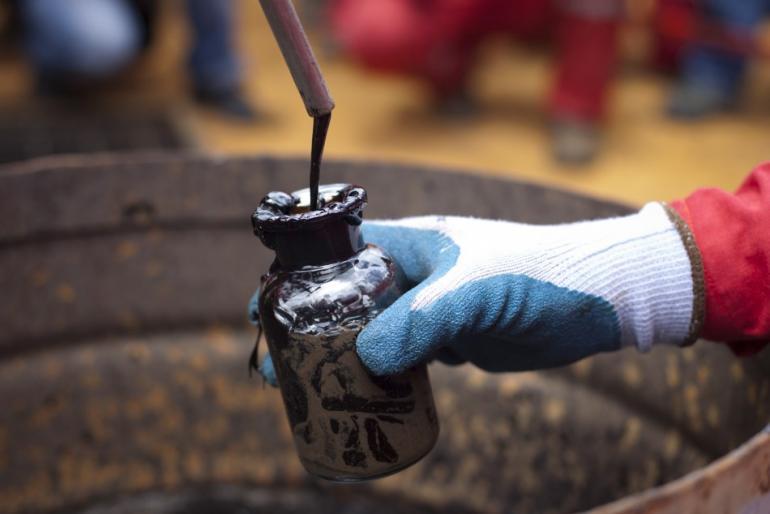
OIL PRICES: $60/BBL

Any hope that global demand would provide a floor for oil's freefall was dashed as the leading energy forecaster cut its outlook for the fourth time in five months and crude extended its tumble.
Oil dropped 3.6 percent in New York after the International Energy Agency forecast weaker consumption next year and said supply from countries outside of the Organization of Petroleum Exporting Countries will rise faster than previously estimated.
This year's 41 percent drop in crude has hurt the economies of oil-producing countries from Russia to Nigeria, reducing fuel demand. Brent crude is too low for 10 of OPEC's 12 members to balance their budgets, yet not low enough to force producers to scale back output. The U.S. is producing the most oil in three decades and OPEC members have pumped more than the group's target level for each of the past six months.
"These low prices aren't spurring an uptick in demand," John Kilduff, a partner at Again Capital LLC, a New York-based hedge fund that focuses on energy, said by phone. "Economies aren't as energy intensive as they once were so the relationship isn't that strong anymore."
Oil extended losses to a five-year low today. West Texas Intermediate crude for January delivery dropped to $57.81 a barrel on the New York Mercantile Exchange, the lowest close since May 2009. Brent for January settlement slid 2.9 percent to $61.85 on the London-based ICE Futures Europe exchange, the least since July 2009.
Global Demand
World oil consumption will expand by 230,000 barrels a day less than estimated in November, the Paris-based adviser to 29 nations said in a report today. Most of the reduction in next year's outlook is attributable to Russia, where sanctions are hobbling growth, it said.
"We are looking at a supply surplus going into next year," Tim Evans, an energy analyst at Citi Futures Perspective in New York, said by phone. "The IEA had an interesting point. The demand revisions are mainly due to the impact of lower prices on Russia and other producers."
Global demand will increase by 900,000 barrels a day to average 93.3 million barrels a day, according to the report. The IEA curbed estimates for Russian oil demand in 2015 by 195,000 barrels a day to 3.4 million.
"We expect to see the effects of lower prices feeding through in the second half of next year," Miswin Mahesh, an analyst at Barclays Plc, said by phone from London.
Non-OPEC Supply
The IEA boosted projections for supplies outside OPEC in 2015 by 200,000 barrels a day, forecasting daily output will expand by 1.3 million barrels after climbing by a record 1.9 million this year. U.S. production will "continue to grow apace in 2015," expanding by 685,000 barrels a day, the agency said.
"There are oil projects in the pipeline that won't be cancelled," said Michael Lynch, president of Strategic Energy and Economic Research in Winchester, Massachusetts. "This will keep downward pressure on oil. The producers are going to do most of the work to rebalance the market."
The agency cut estimates for the amount of crude needed next year from the Organization of Petroleum Exporting Countries by 300,000 barrels a day. The group will need to pump an average of 28.9 million barrels a day in 2015, about 1.4 million less than its 12 members produced last month and below the 30-million target agreed on Nov. 27.
OPEC output declined by 315,000 barrels a day last month because of disruptions in Libya, where production fell by 180,000 barrels a day to 690,000 a day following an attack at El Sharara, the country's biggest oil field.
Saudi Output
Production in Saudi Arabia, OPEC's biggest producer, fell by 70,000 barrels to 9.61 million barrels because of the closing of the Khafji oilfield that the kingdom shares with Kuwait, the IEA said.
China may have added to strategic crude stockpiles last month, after pausing the activity in October, the IEA said. There are 83 supertankers bound for Chinese ports, according to shipping signals from IHS Maritime, compiled by Bloomberg at about 8:30 a.m. today in London. The ships would transport 166 million barrels, assuming standard cargoes, the most in data starting in October 2011.
Global oil inventories may rise by 297 million barrels in the first half of next year, it said. That could lift stockpiles to 2.87 billion barrels in OECD countries, straining some nations' ability to store, it said.
'Very Adversely'
"Some of the places where demand had been growing particularly fast in recent years had been producer countries because record-high prices were a huge stimulus," Antoine Halff, head of the IEA's oil industry and markets division, said by phone from Paris. "Now those countries are affected very adversely."
Russia's currency is on course for its worst year since the nation's 1998 default, amid a battering from falling oil prices and sanctions over the conflict in Ukraine. The nation's government said for the first time last week that the economy will probably contract 0.8 percent in 2015, the worst performance since it shrank 7.8 percent in 2009.
Even in nations whose economies are growing faster, a switch to more efficient vehicles is slowing demand. On average, automobiles sold in the U.S. during August could travel 25.8 miles on a gallon of fuel, up 28 percent since 2007, according to the University of Michigan's Transportation Research Institute.
"OPEC is paying the price for four years of $100 oil in two ways," Kilduff said. "It spurred the shale boom here and led to tremendous efficiencies that have curbed demand."
bloomberg.com





